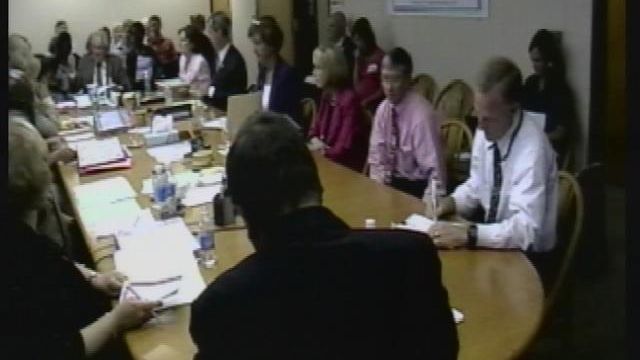Wake schools looking 'Stage 5' fiscal hurricane 'right in the eye'
Federal money that Wake schools will lose in 2011-12 now fund some custodial and clerical positions, and the entire budget picture is glum.
Posted — UpdatedThe board cut personnel in the 141,000-student, 159-school system to get to a $1.4 billion operating and capital budget for the current year, which began July 1. Now, the district staff is looking at the next budget, and finance director David Neter told the board during it must do without $48 million that the American Recovery and Reinvestment Act contributed to the current budget and probably will lose another $41 million in federal money that the state routed to the school system as a one-time fill-in after direct state funding was slashed.
In addition, Neter reported, a recent order for state agencies to submit plans for cutting their budgets 5, 10 or 15 percent next year probably include the Department of Public Instruction.
In planning for next year, the staff will assume that county commissioners keep their contribution to the schools at the 2010-11 level, which is the same as the 2009-10 level. Even if the county affords that, though, Wake will open two new schools next year and expects 3,700 more students, Neter said.
"All significant slack" in the district has been cut already, Neter said, "and we're still facing a Stage 5 hurricane – and right in the eye."
The money the state passed through from Washington, called stabilization funding, will affect janitorial services and some clerical positions, the finance chief said. The board will have to wrestle with trying to find money for the jobs or face more reductions. Even if people are let go, Neter added, the district faces expenses in paying benefits for a time afterward.
Adding to the gloom, Neter reported that economists think unemployment nationally will stay at 9 percent through 2011. Wake County unemployment has been better than state and national averages, he said, but county and state revenues will not begin to rise again until people find jobs and resume spending to generate sales tax.
In the bit of bright news, Neter said that $27.7 million in job-saving funds from a recently enacted federal law are intended for spending in this fiscal year, but unspent money can be carried into 2011-12. That money is only for salary and benefits for school-based personnel, however. The board is using some of it now to add bus drivers' hours and resume after-school transportation for students who stay late for activities.
In action taken during a voting meeting, the school board approved a policy change that defines "long-term suspension" as anything between 10 days and the remainder of a school year. Previous policy made it strictly the time from an infraction to the end of school.
The board also voted to undertake what its lawyer called a "pilot" program in which it will delegate to the superintendent its power to alter suspensions on appeal.
Interim Superintendent Donna Hargens told the board during a work session that the two changes she requested Tuesday are among 15 policy changes that the administration will bring to the board after an 18-month study of ways to handle misbehavior while not turning students completely out of education.
The changes will include limiting "zero-tolerance" infractions to ones required by state law and giving school principals more discretion in handing out punishments. State law requires long-term suspension only for bomb threats or bringing firearms to a school, Hargens said.
Board member John Tedesco has been among critics saying that mandatory suspensions for a range of violations only turn youth out to the streets and gang influence. Keeping them in some educational setting will do more good and can help raise graduation rates, reformers assert.
In one change from recent history, there were no protests or arrests during public comment at the board's Tuesday meeting. Its two previous meetings had seen Raleigh police taking demonstrators away in handcuffs after they disrupted the meetings.
• Credits
Copyright 2024 by Capitol Broadcasting Company. All rights reserved. This material may not be published, broadcast, rewritten or redistributed.






